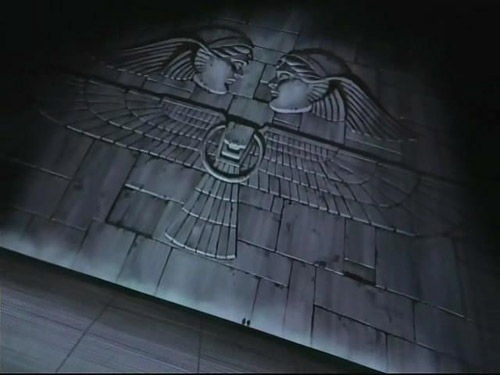凡事物有一缺點就會有一優點,有一優點就會有一缺點
不必偏執任何一邊
正覺要義(Version 1.0.2)
弘元道藏星夜破曉
1001 回覆
7 Like
39 Dislike
凡事物可以是天堂,又可以是地獄,又可以是中性,如何呈現須視乎業力(善、惡或中性業)
修改:
同一事物被感受時可以是天堂,又可以是地獄,又可以是中性,如何呈現須視乎業力(善、惡或中性業)
同一事物被感受時可以是天堂,又可以是地獄,又可以是中性,如何呈現須視乎業力(善、惡或中性業)
依己為島,依法為島
依外人或外物(例如偶像)就不堅固
依外人或外物(例如偶像)就不堅固
每個人一整段生命當中所遇的事和所處的宇宙都只是阿賴耶識的一極微小部分,也即蛇(梵天)在一場千秋大夢中一個轉瞬即逝的念頭
就連我們所處所整個物理宇宙、廣大空間和無數星體都只是一個較大念頭(多個小念頭的共同場景),同樣也轉瞬即逝和微不足道的
就連我們所處所整個物理宇宙、廣大空間和無數星體都只是一個較大念頭(多個小念頭的共同場景),同樣也轉瞬即逝和微不足道的
如果不明白正理,一個人即使有強大的力量去征戰,也不過是精通地玩着對戰遊戲的懵懂孩子


他們與鏡中的自己鬥爭,長年累月不知不覺
人類千萬年來征服自然界的過程是循環地建立和倒塌的巴別塔,新巴別塔好似與舊的那座不一樣,新的那一座看來更接近成功
如此周而復始永無止境
如此周而復始永無止境
惡世裏的事物百千萬來一直loop住重覆發生,一切似新還舊,似有還無
所謂堪忍就是眾生能夠忍受這一切循環着的勞累悲苦,所謂厭離就是覺知這一切的無謂
所謂堪忍就是眾生能夠忍受這一切循環着的勞累悲苦,所謂厭離就是覺知這一切的無謂
之所以話科學十分偉大,因為科學給予宗教一個較為客觀的論證框架
尤其是量子力學展示了我們平常宏觀經驗較清明的面貌
量子現象不奇怪,奇怪的是人的固有執念偏離正覺,正覺觀念下量子現象和平常宏觀經驗一致
每個生靈都有一主觀宇宙,所謂客觀其實是共通的主觀
客觀亦可以有很多個,不相容的客觀之間造成人群與人群之間各自的共通主觀,像曼德拉效應
客觀即是主觀,主觀即是客觀,不一亦不異
https://www.technologyreview.com/2019/03/12/136684/a-quantum-experiment-suggests-theres-no-such-thing-as-objective-reality/
The experiment produces an unambiguous result. It turns out that both realities can coexist even though they produce irreconcilable outcomes, just as Wigner predicted.
That raises some fascinating questions that are forcing physicists to reconsider the nature of reality.
The idea that observers can ultimately reconcile their measurements of some kind of fundamental reality is based on several assumptions. The first is that universal facts actually exist and that observers can agree on them.
But there are other assumptions too. One is that observers have the freedom to make whatever observations they want. And another is that the choices one observer makes do not influence the choices other observers make—an assumption that physicists call locality.
If there is an objective reality that everyone can agree on, then these assumptions all hold.
But Proietti and co’s result suggests that objective reality does not exist. In other words, the experiment suggests that one or more of the assumptions—the idea that there is a reality we can agree on, the idea that we have freedom of choice, or the idea of locality—must be wrong.
Of course, there is another way out for those hanging on to the conventional view of reality. This is that there is some other loophole that the experimenters have overlooked. Indeed, physicists have tried to close loopholes in similar experiments for years, although they concede that it may never be possible to close them all.
尤其是量子力學展示了我們平常宏觀經驗較清明的面貌
量子現象不奇怪,奇怪的是人的固有執念偏離正覺,正覺觀念下量子現象和平常宏觀經驗一致
每個生靈都有一主觀宇宙,所謂客觀其實是共通的主觀
客觀亦可以有很多個,不相容的客觀之間造成人群與人群之間各自的共通主觀,像曼德拉效應
客觀即是主觀,主觀即是客觀,不一亦不異
https://www.technologyreview.com/2019/03/12/136684/a-quantum-experiment-suggests-theres-no-such-thing-as-objective-reality/
The experiment produces an unambiguous result. It turns out that both realities can coexist even though they produce irreconcilable outcomes, just as Wigner predicted.
That raises some fascinating questions that are forcing physicists to reconsider the nature of reality.
The idea that observers can ultimately reconcile their measurements of some kind of fundamental reality is based on several assumptions. The first is that universal facts actually exist and that observers can agree on them.
But there are other assumptions too. One is that observers have the freedom to make whatever observations they want. And another is that the choices one observer makes do not influence the choices other observers make—an assumption that physicists call locality.
If there is an objective reality that everyone can agree on, then these assumptions all hold.
But Proietti and co’s result suggests that objective reality does not exist. In other words, the experiment suggests that one or more of the assumptions—the idea that there is a reality we can agree on, the idea that we have freedom of choice, or the idea of locality—must be wrong.
Of course, there is another way out for those hanging on to the conventional view of reality. This is that there is some other loophole that the experimenters have overlooked. Indeed, physicists have tried to close loopholes in similar experiments for years, although they concede that it may never be possible to close them all.
時空在人的心中
我們可以創造歷史,也可以回憶未來
我們可以創造歷史,也可以回憶未來
凡事有個平衡力,去唔到太遠,偏得太遠就會返轉頭
每個人都活在鏡子面前,鏡反映自己動作,
宇宙和物質不過是因應業生滅的顯像而非實有,可能要經歷多次生死才會覺悟
這個詭局很殘酷,但又應得
這是哲學匯聚處所得的結論
宇宙和物質不過是因應業生滅的顯像而非實有,可能要經歷多次生死才會覺悟
這個詭局很殘酷,但又應得
這是哲學匯聚處所得的結論
嘆息之牆(Western Wall),希臘神話中分界極樂淨土和冥界的一塊牆壁就叫嘆息之牆。據説是由冥後貝瑟芬妮的三聲嘆息組成。意思:在冥界的靈魂眼看着極樂淨土就要在前面卻被阻隔着,望着為之嘆息。

那幅牆愈打就愈堅固,愈撞就生出愈多針刺
嘆息之牆可以怎樣通過呢?

那幅牆愈打就愈堅固,愈撞就生出愈多針刺
嘆息之牆可以怎樣通過呢?
更進一步,所有嚴肅的故事之間都有聯繫地表達同一件事,不過這種聯繫可能連作者都未必清楚
其實這個世界不是一個競技場,但為何會被人誤會為一個生物之間的競技場呢??
蛇的無明詭局使自己成為自己的敵人,蛇以為可以把自己吞噬掉
蛇的無明詭局使自己成為自己的敵人,蛇以為可以把自己吞噬掉
知唔知點解我要係度話俾你地聽呢套思想?因為我曾經欠過你地這一套道理
人面對的嘆息之牆一般是物質所造,但世上最令人嘆息的牆可能是人自己的內心,這幅牆可以比高聳萬里的銅牆鐵壁更難打破,人有能力製造大炮打穿物質牆壁,但難以穿透自己的妄執
我們今生過不了這幅讓人嘆息悲鳴的堅巨牆壁就不知要到何日才可以嘗試再過一次,那苦是很大的
神 的公義施行 - 即緣起法或佛法等所示,神 為人所施加之苦樂或中性報皆是人應得的
生命在每一次生死之間就一次極力逃避通過死亡這一個不斷迫近的極苦之門,當中很容易因為慾望和恐懼等驅使而惡性循環地墮落,當中的事物其實也不怎樣新奇和有趣的,反正似新還舊、似有還無,日光之下無新事
新即是舊,舊即是新,不一亦不異


希臘神話有些地方又同佛教有異曲同工之妙


希臘神話有些地方又同佛教有異曲同工之妙
生死就在呼吸之間,生命物質的組成部分(身體、財物和環境等)一直更替,生命心靈的組成部分(記憶、性格和信念等)也一直更替
長年累月到某一段長時間,物質和心靈都會完全更新,這是隱性的死亡
人一般認知的死亡是較顯性的那種,即是身體完全腐化的那一種
既然今日的某人同幾年前的某人,不是同一件“物體”,咁點解法律要因為某人幾年前的罪行而懲罰今日的某人呢?
https://lih.kg/2342838
- 分享自 LIHKG 討論區
一花一世界,一葉一菩提
每一粒塵之中都可以有世界(如地球),也都可以有菩提
長年累月到某一段長時間,物質和心靈都會完全更新,這是隱性的死亡
人一般認知的死亡是較顯性的那種,即是身體完全腐化的那一種
既然今日的某人同幾年前的某人,不是同一件“物體”,咁點解法律要因為某人幾年前的罪行而懲罰今日的某人呢?
https://lih.kg/2342838
- 分享自 LIHKG 討論區
一花一世界,一葉一菩提
每一粒塵之中都可以有世界(如地球),也都可以有菩提